Qatar accuses Saudi Arabia of bullying small countries into submission
Qatar says Saudi Arabia has been sparking off crises across the Middle East and “bullying small countries into submission,” some six months after Riyadh formed an alliance against Doha and imposed a tight blockade on the small Persian Gulf emirate.
Qatari Foreign Minister Mohammed bin Abdulrahman Al Thani made the remarks during a Friday press conference in Washington, DC, adding that Riyadh’s political maneuvers in Lebanon were similar in nature to the Saudi boycott of Doha.
He further accused the Arab kingdom of triggering a dangerous escalation in the region.
Saudi Arabia, Bahrain, Egypt, and the United Arab Emirates (UAE) cut their diplomatic ties with Qatar on June 5, accusing it of sponsoring “terrorism” and destabilizing the region. The Saudi-led bloc has also imposed sanctions against the country, including restrictions on Qatari aircraft using their airspace. Doha rejects the claims, saying the boycotters are attacking its sovereignty.
Later in June, the four Arab countries urged Qatar to abide by a 13-point list of demands if it wanted the crippling blockade lifted. The demands included shutting down the Doha-based Al Jazeera broadcaster, scaling back cooperation with Iran, closing the Turkish military base in Qatar, and paying an unspecified sum in reparations.
Qatar, however, firmly refused to comply, calling the wide-ranging demands “unrealistic, unreasonable and unacceptable.” In return, the four feuding countries vowed to impose further sanctions on Doha.
The top Qatari diplomat further said on Friday that his respective country was ready to come to the negotiating table to resolve the dispute with the Saudi-led bloc under US mediation, playing down reports that American President Donald Trump has taken Riyadh’s side.
Al Thani, however, maintained that Doha keeps its tough stance against Saudi Arabia, arguing that Riyadh is responsible for causing a series of crises in the Middle East, by its recent interference in Lebanon's affairs, boycotting Qatar since June, and waging a full-scale war against impoverished Yemen since March 2015.
“This is something we have just witnessed in the region: Bullying small countries into submission,” he said, suggesting that the Saudi aggression is a new threat in the region. “Exactly what happened to Qatar six months ago is happening now to Lebanon.”
Back on November 4, Lebanese Prime Minister Saad Hariri announced his resignation in a televised address while he was in Saudi Arabia, saying that he was stepping down because of the security situation in Lebanon. He also said that he saw a plot being hatched against his life.
Hariri also accused Iran and the Lebanese resistance movement, Hezbollah, of meddling in the Arab countries’ affairs; an allegation the two have rejected.
Top Lebanese officials and senior politicians close to Hariri say he was forced to quit, and is being held by Saudi authorities. Lebanese politicians from across the political spectrum have called for Hariri’s return to Beirut, saying it is necessary to resolve the crisis.
Lebanese President Michel Aoun has called Hariri a Saudi hostage and refused to accept his shock resignation unless he returns to Beirut.
“The leadership in Saudi and the UAE should understand that there is a world order that should be respected. International law should be respected,” the Qatari foreign minister further said.
“There is no right for any country to interfere in other countries,” Al Thani further argued, warning, “There is a pattern that is very risky for the region, and very intimidatory.”
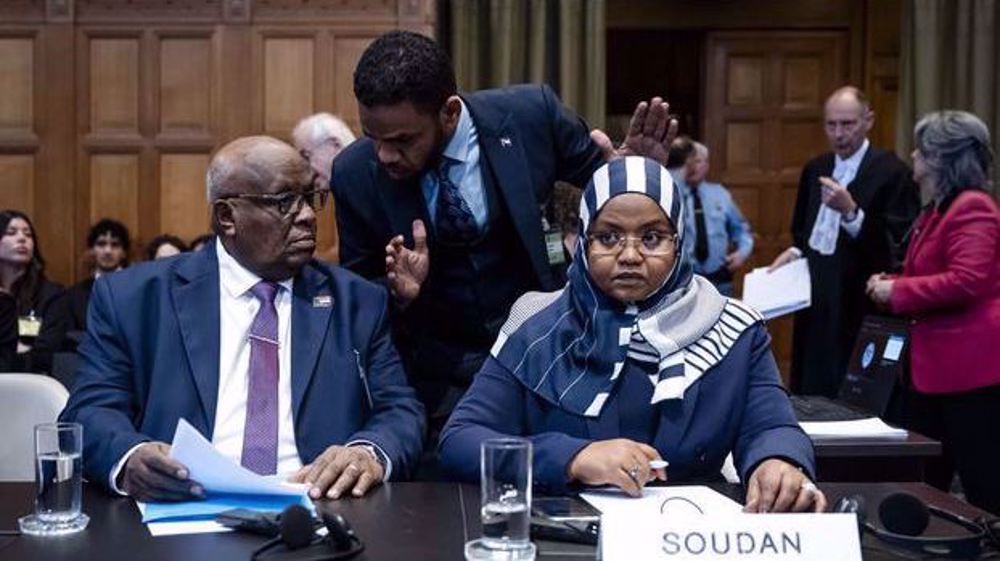
Sudan takes UAE to World Court over 'genocide' in Darfur
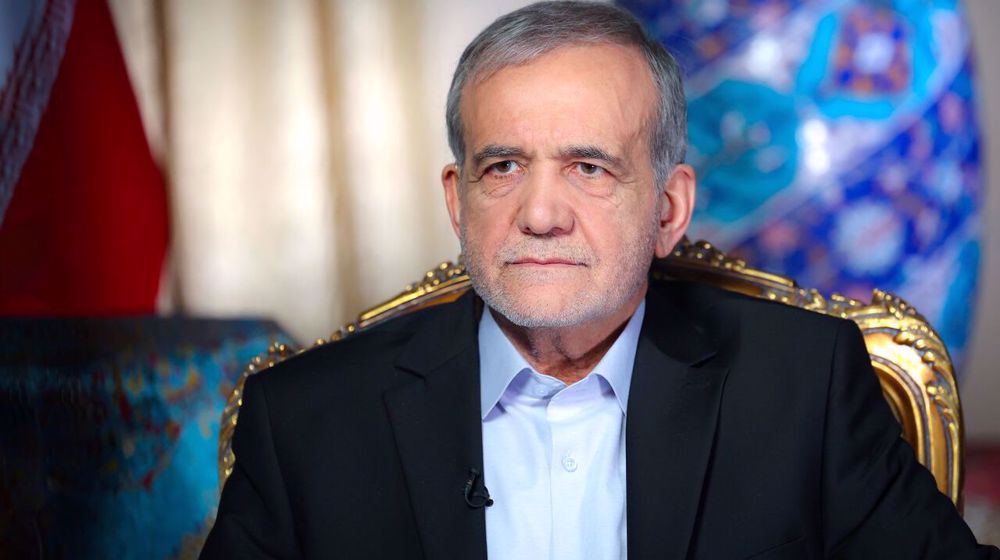
Pezeshkian: Iran seeks stronger ties with neighboring countries
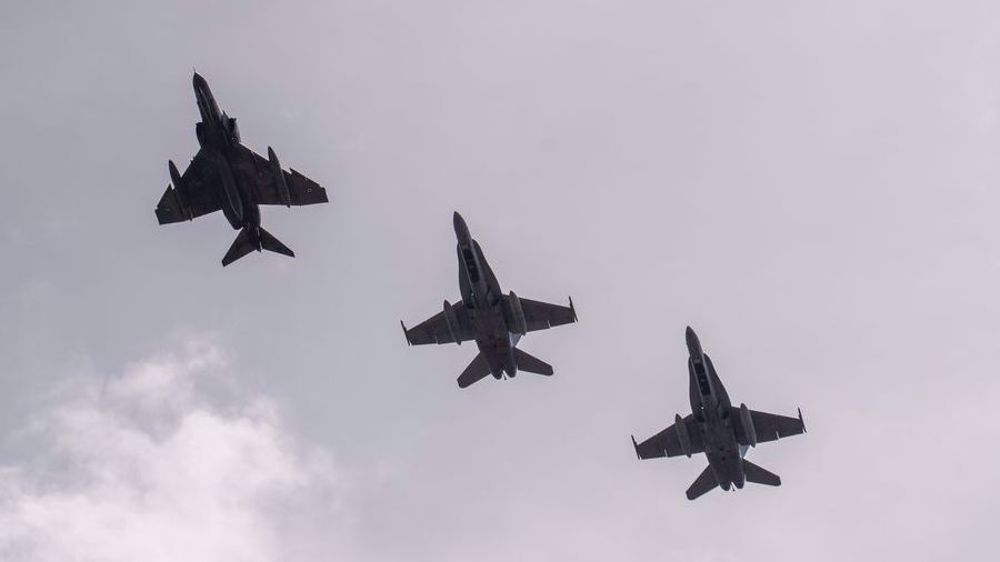
Qatar joins Israel for 'side by side training' in aerial drills in Greece
Jeffrey Sachs: West Asia will see no peace until US is out
The implications of Trump’s trade war for Iran
Iran: Indirect talks with US strictly limited to nuclear, sanctions issues
Harvard faculty sue Trump admin over funding threat tied to pro-Palestine activism
Iran urges UN to employ resources to halt Israeli genocide in Gaza
VIDEO | Thousands rally in Dhaka in support of Gaza amid renewed violence
Indirect but impactful: Iran-US talks mediated by Oman off to a ‘constructive’ start
Hamas slams Israeli airstrike on Al-Ahli Hospital as ‘yet another war crime’


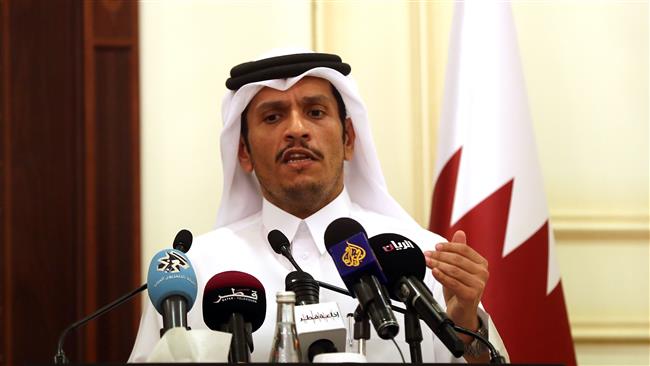





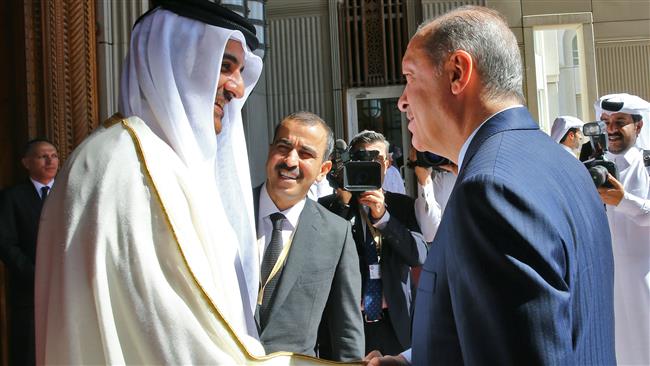
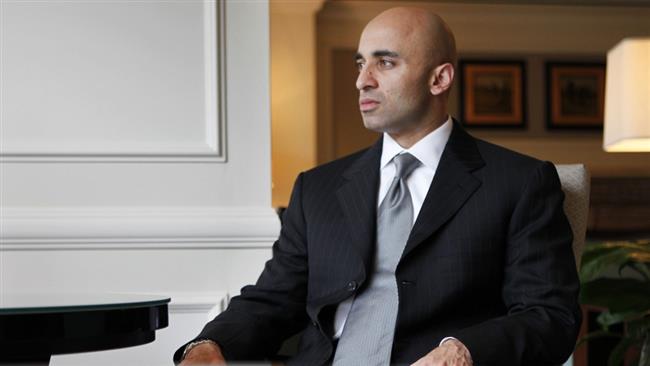


 This makes it easy to access the Press TV website
This makes it easy to access the Press TV website